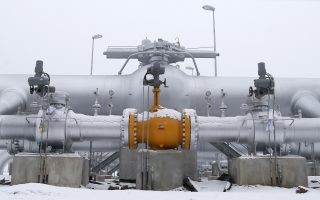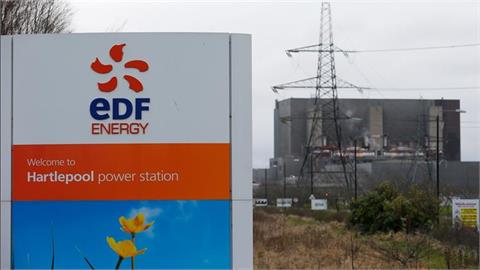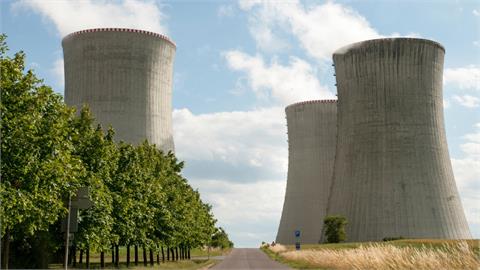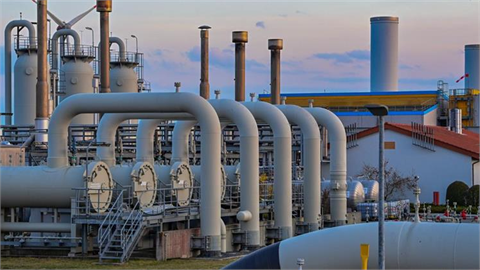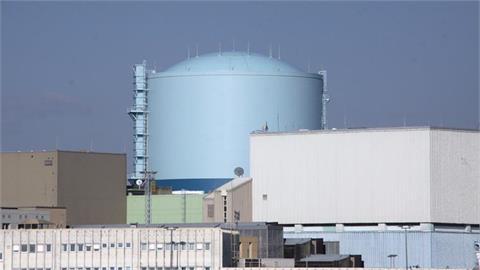Earlier this month, the United States surprised Greece and its two primary partners in the Eastern Mediterranean Gas Forum, Israel and Cyprus, by withdrawing its backing for a natural gas pipeline that would have connected them to Europe. The American change of heart was ostensibly justified by the need to focus on clean energy sources and that this project did not align with Europe’s green energy plans.
By Henri J. Barkey*
Earlier this month, the United States surprised Greece and its two primary partners in the Eastern Mediterranean Gas Forum, Israel and Cyprus, by withdrawing its backing for a natural gas pipeline that would have connected them to Europe. The American change of heart was ostensibly justified by the need to focus on clean energy sources and that this project did not align with Europe’s green energy plans.
Instead, Washington urged the countries to consider two alternative electricity transmission projects: the EuroAfrica Interconnector intended to deliver electricity from Egypt through Cyprus and then onwards to Greece and Europe via Crete; and its sister EuroAsia project that starts in Israel and connects to Europe through Cyprus. Both projects integrate these countries’ electricity grids with Europe’s.
The EastMed gas pipeline idea emerged after significant findings of gas deposits in the territorial waters of Cyprus, Egypt and Israel. The pipeline, which would have cost an estimated $6-7 billion, was seen by many as an unrealistic project given the potential changes in European energy consumption patterns, its sheer complexity and cost, and the financing needs. Chances were that it would not get off the ground, much less be completed by 2025 as projected.
The US State Department withdrew support for the project through the delivery of a non-paper – an informal manner of expressing a government’s preferences or requirement without direct attribution. Presumably the content could have been delivered orally except that Washington may have tried to avoid a situation where its message was diluted.
Even if the US may have thought it had a responsibility as part of the 3+1 mechanism of meetings with Cyprus, Greece and Israel designed to encourage regional cooperation, the fact remains that the decision to build a pipeline rests with those three countries and the Europeans, and not Washington.
Similarly, if the project did not fit the future European green energy plans, presumably this too was a European decision. After all, both Greece and Cyprus are members of the European Union. But as it stands now, this announcement will be perceived as an attempt by Washington at strong-arming the parties.
The timing of the non-paper was awkward. Europe and the US are amid one of the most dangerous confrontations with Russia over Ukraine. Russian natural gas pipelines are the ones that heat European homes and fuel industry. If President Vladimir Putin were to attack Ukraine, it appears that the recently completed Nord Stream-2 gas pipeline to Germany would be the first target of retaliation. Even if the EastMed pipeline was unrealistic, would it not have been more astute to let Putin think that Europe has other options?
The Biden administration’s opposition to the EastMed pipeline originates from its very public commitment, almost ideological, to speeding up the transition to renewable sources of energy.
This said, the EuroAfrica and the EuroAsia connectors have the advantage of flexibility in sourcing, that is, electricity can be generated from a variety of sources ranging from solar to natural gas. The EuroAfrica’s first phase, between Egypt and Cyprus, is planned to be operational by December 2023 and the second, from Cyprus to Greece, at the end of 2024. Planning for the EuroAsia connector, by contrast, is not as advanced as its Africa counterpart.
Still, the gas in the region will find outlets in the region. Surprisingly, Israel recently agreed for some of its gas to be shipped to Lebanon through a circuitous route, but more importantly Egypt has been ramping up its liquified natural gas (LNG) capabilities. This will allow Cairo to export its own gas as well as that of its neighbors to a more diverse and flexible market.
The original January 2020 EastMed agreement between Cyprus, Greece and Israel, and its incorporation of other countries including Egypt, Palestine and France, represented a fundamental geopolitical shift in the region that will endure irrespective of the pipeline’s fate. It helped create an anti-Turkish partnership designed to contain Ankara’s increasingly assertive policies in the region as well as to unlock new cooperative opportunities.
In a complete misreading of Washington’s decision, the Turkish government and its press acclaimed the move as an immense win for Turkey. Ankara had always voiced objections to the gas pipeline, arguing that the only way to export gas to Europe was through Turkey. The problem was that the Erdogan government had alienated Israel and moreover Turkey does not recognize Cyprus, which made any such deal impossible. Israel, by aligning itself with Cyprus, has made future cooperation with Turkey over gas highly unlikely.
Turkish-American relations have been fraught of late; Ankara has found itself on the receiving end of American ire as disputes over Turkey’s purchase of Russian S-400 anti-aircraft missiles that would endanger America’s frontline F-35 planes, to disagreements over northern Syria and a litany of other discords have estranged the two allies.
At a time when the Erdogan government is struggling to contain an economic crisis, increasing disenchantment at home and a sense of siege, it was not surprising for Ankara to play up the US pipeline decision as good news.
Herein also lies another problem: Given the Turkish leadership’s propensity to believe its own interpretation of events, will this cause them to miscalculate and once again up the ante in the Eastern Mediterranean? Only time will tell.
*Henri J. Barkey is the Cohen Professor of International Relations at Lehigh University in Bethlehem, Pennsylvania, and an adjunct senior fellow for Middle East studies at the Council of Foreign Relations. This article was published in arrangement with Syndication Bureau.
(ekathimerini.com, February 7, 2022)
